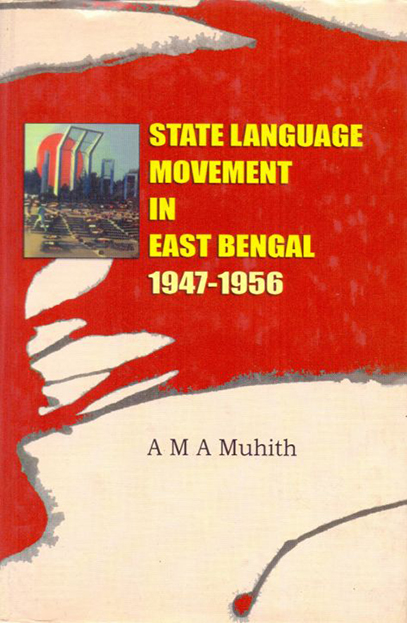
State Language Movement in East Bengal 1947-1956
https://uplbooks.com/shop/9789840517954-state-language-movement-in-east-bengal-1947-1956-11874 https://uplbooks.com/web/image/product.template/11874/image_1920?unique=b656810
| Language: English |
Tags :
Book Info
21st February is the International Mother Language Day. The choice of the date owes its origin to the state language movement of East Bengal beginning with the creation of Pakistan in 1947 and ending with the liberation of Bangladesh in 1971. The saga of this martyrdom for the mother tongue is the subject of this book written by a participant in the movement, who is a luminary in the intellectual horizon of Bangladesh. The book gives the details of the movement from 1947. Mainly dealing with the period from 1947 to 1956 when Bangla was recognised as a state language of Pakistan, the book covers subsequent landmarks in the history of the movement ending with the declaration of Mother Language Day in 2000. The history of Bangla as a language in the Indo-Germanic family and its emergence as a pioneer language in the subcontinent and a language of the Muslims in Bengal is briefly recounted. Pakistan imposed Urdu as the only official language in the country neglecting the claim of Bangla, the language of 63 percent of its population. That ignited the movement and it gained strength from other developments that soured relations between the two wings of Pakistan and turned East Pakistan into a colony of West Pakistan. Deprivation in all spheres added fuel to the language movement and Bengalis of East Pakistan asserted their nationalistic identity and fought a liberation war for the emergence of the nation-state, Bangladesh. Many books have been written on the language movement in the last half a century but most of them are in Bengali. This is almost the first comprehensive book on the epic struggle of the Bangla language in the English language.

Abul Maal A. Muhith
Abul Maal A. Muhith is a well-known Bangladeshi politician, economist and writer. Apart from serving as Finance Minister of the Bangladesh Government for several periods, he was in the civil service, worked in the World Bank, the Asian Development Bank and in various diplomatic positions. Educated at Dhaka, Oxford and Harvard universities, he has published two dozen books on diverse subjects. In 1984 and 1985, he was a Visiting Fellow at the Woodrow Wilson School of Princeton University. He was Chairman of Bangkok-based UNESCAP, co-chair of Rome-based Third World Forum and Founder Chair of the environment movement ‘BAPA’ of Bangladesh and its predecessor ‘Porosh’.


